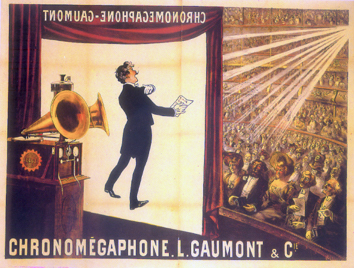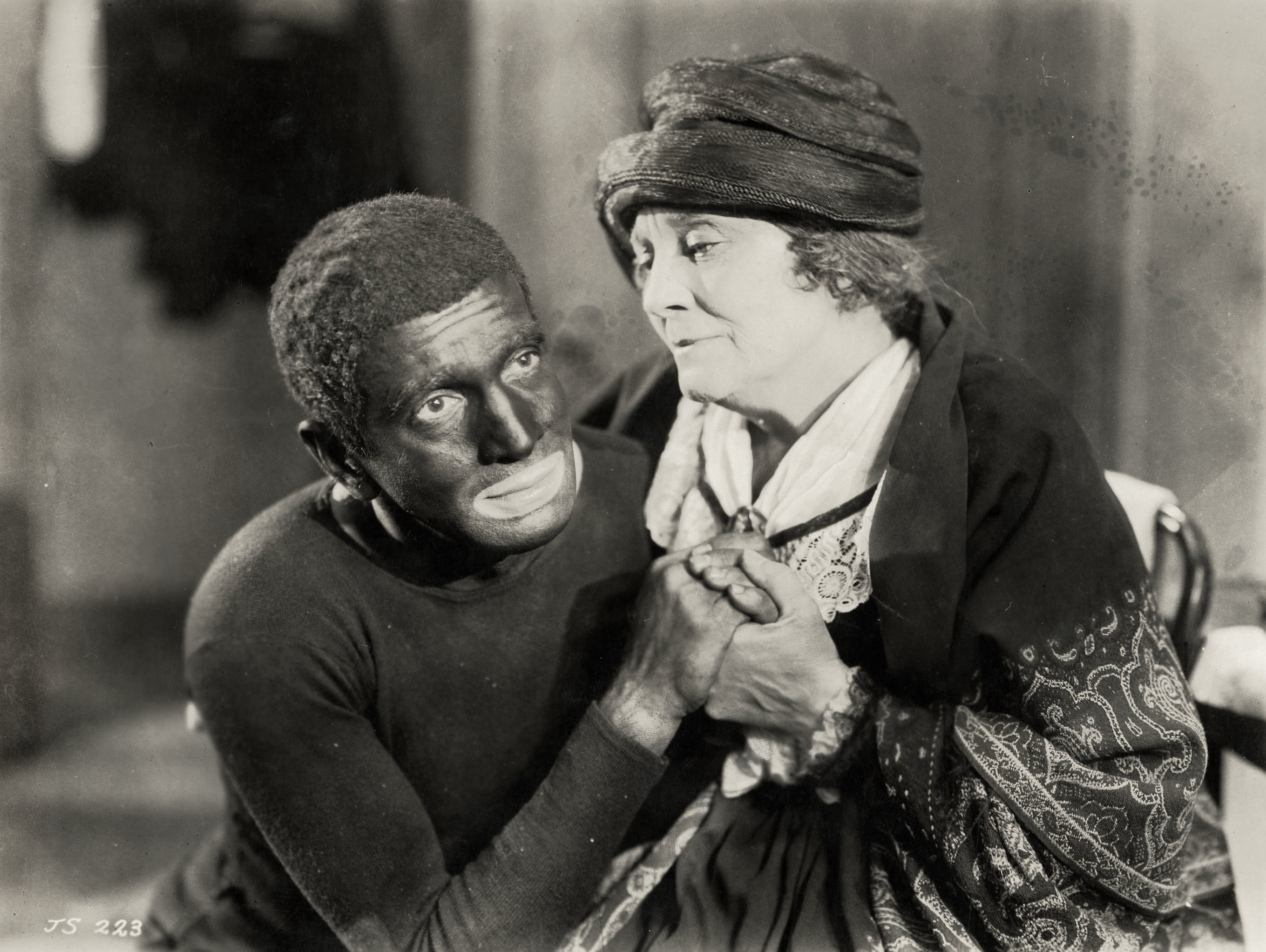|
John Spikes
John Curry Spikes (July 22, 1881 – June 28, 1955) was an American jazz musician and entrepreneur. Along with his brother Reb Spikes, John ran a traveling show band in early 1900s. At one point, Jelly Roll Morton was a member of the band.''The Rough Guide to Jazz''. Ian Carr, Digby Fairweather, Brian Priestley and Charles Alexander. Rough Guides, 2004. pp. 752-753. The Spikes brothers were performing in San Francisco around 1915, under the name The Original So-Different Orchestra, with Reb Spikes billed as the "World's Greatest Saxophonist".Floyd Levin: "The Spikes brothers - a Los Angeles saga", ''Jazz Journal'', December 1951 Around 1919, they settled in Los Angeles, where they started a music store, a nightclub, an agency and a publishing house. They were the first to record an all-black jazz band in 1922. In 1927, they shot a short sound film that predated ''The Jazz Singer'', the first full-length sound film. Their most enduring musical collaborations were writing the ly ... [...More Info...] [...Related Items...] OR: [Wikipedia] [Google] [Baidu] |
Jazz
Jazz is a music genre that originated in the African-American communities of New Orleans, Louisiana in the late 19th and early 20th centuries, with its roots in blues and ragtime. Since the 1920s Jazz Age, it has been recognized as a major form of musical expression in traditional and popular music. Jazz is characterized by swing and blue notes, complex chords, call and response vocals, polyrhythms and improvisation. Jazz has roots in European harmony and African rhythmic rituals. As jazz spread around the world, it drew on national, regional, and local musical cultures, which gave rise to different styles. New Orleans jazz began in the early 1910s, combining earlier brass band marches, French quadrilles, biguine, ragtime and blues with collective polyphonic improvisation. But jazz did not begin as a single musical tradition in New Orleans or elsewhere. In the 1930s, arranged dance-oriented swing big bands, Kansas City jazz (a hard-swinging, bluesy, improvisationa ... [...More Info...] [...Related Items...] OR: [Wikipedia] [Google] [Baidu] |
Reb Spikes
Benjamin Franklin "Reb" Spikes (October 31, 1888 – February 24, 1982) was an American jazz saxophonist and entrepreneur. His composition with his brother John, "Someday Sweetheart", has become an often-recorded jazz standard. Biography Spikes was born in Dallas to an African American family, and also had Irish, French, Norwegian and Native American heritage. Nicknamed "Rebel" since childhood, the name was eventually shortened to "Reb". His family moved to Los Angeles in 1897, where Spikes worked on building sites before moving to San Francisco in 1907. Almost all of Spikes's siblings were pianists, but for a long time, Spikes preferred painting to music. He eventually took up music when his brother John bought him a set of drums. The brothers started touring the Southwest and Midwest as a piano and drums duo. Reb learned to play several instruments, including the saxophone, the clarinet, the trombone, and some piano. In 1914, Spikes returned to San Francisco and was hired as ... [...More Info...] [...Related Items...] OR: [Wikipedia] [Google] [Baidu] |
Jelly Roll Morton
Ferdinand Joseph LaMothe (later Morton; c. September 20, 1890 – July 10, 1941), known professionally as Jelly Roll Morton, was an American ragtime and jazz pianist, bandleader, and composer. Morton was jazz's first arranger, proving that a genre rooted in improvisation could retain its essential characteristics when notated. His composition "Jelly Roll Blues", published in 1915, was one of the first published jazz compositions. He also claimed to have invented the genre. Morton also wrote "King Porter Stomp", "Wolverine Blues", "Black Bottom Stomp", and "I Thought I Heard Buddy Bolden Say", the last being a tribute to New Orleans musicians from the turn of the 20th century. Morton's claim to have invented jazz in 1902 was criticized. Music critic Scott Yanow wrote, "Jelly Roll Morton did himself a lot of harm posthumously by exaggerating his worth...Morton's accomplishments as an early innovator are so vast that he did not really need to stretch the truth." Gunther Schuller ... [...More Info...] [...Related Items...] OR: [Wikipedia] [Google] [Baidu] |
San Francisco
San Francisco (; Spanish language, Spanish for "Francis of Assisi, Saint Francis"), officially the City and County of San Francisco, is the commercial, financial, and cultural center of Northern California. The city proper is the List of California cities by population, fourth most populous in California and List of United States cities by population, 17th most populous in the United States, with 815,201 residents as of 2021. It covers a land area of , at the end of the San Francisco Peninsula, making it the second most densely populated large U.S. city after New York City, and the County statistics of the United States, fifth most densely populated U.S. county, behind only four of the five New York City boroughs. Among the 91 U.S. cities proper with over 250,000 residents, San Francisco was ranked first by per capita income (at $160,749) and sixth by aggregate income as of 2021. Colloquial nicknames for San Francisco include ''SF'', ''San Fran'', ''The '', ''Frisco'', and '' ... [...More Info...] [...Related Items...] OR: [Wikipedia] [Google] [Baidu] |
Sound Film
A sound film is a motion picture with synchronized sound, or sound technologically coupled to image, as opposed to a silent film. The first known public exhibition of projected sound films took place in Paris in 1900, but decades passed before sound motion pictures became commercially practical. Reliable synchronization was difficult to achieve with the early sound-on-disc systems, and amplification and recording quality were also inadequate. Innovations in sound-on-film led to the first commercial screening of short motion pictures using the technology, which took place in 1923. The primary steps in the commercialization of sound cinema were taken in the mid-to-late 1920s. At first, the sound films which included synchronized dialogue, known as "talking pictures", or "talkies", were exclusively shorts. The earliest feature-length movies with recorded sound included only music and effects. The first feature film originally presented as a talkie (although it had only limited so ... [...More Info...] [...Related Items...] OR: [Wikipedia] [Google] [Baidu] |
The Jazz Singer
''The Jazz Singer'' is a 1927 American musical drama film directed by Alan Crosland. It is the first feature-length motion picture with both synchronized recorded music score as well as lip-synchronous singing and speech (in several isolated sequences). Its release heralded the commercial ascendance of sound films and effectively marked the end of the silent film era. It was produced by Warner Bros. with the Vitaphone sound-on-disc system and features six songs performed by Al Jolson. Based on the 1925 play of the same title by Samson Raphaelson, the plot was adapted from his short story "The Day of Atonement". The film depicts the fictional story of Jakie Rabinowitz, a young man who defies the traditions of his devout Jewish family. After singing popular tunes in a beer garden, he is punished by his father, a hazzan (cantor), prompting Jakie to run away from home. Some years later, now calling himself Jack Robin, he has become a talented jazz singer, performing in blackfa ... [...More Info...] [...Related Items...] OR: [Wikipedia] [Google] [Baidu] |
Wolverine Blues (song)
"Wolverine Blues" is an early jazz standard by Jelly Roll Morton with lyrics by the brothers Benjamin Franklin "Reb" Spikes and John Curry Spikes. He recorded it in Richmond, Indiana on 18 July 1923 along with "Kansas City Stomp" and "Grandpa's Spells "Grandpa's Spells" is an early jazz song by Jelly Roll Morton. He recorded it for Gennett Records, Richmond, Indiana (the Star Piano factory) on 18 July 1923 along with "Kansas City Stomp" and "Wolverine Blues". It was released in 1924. The song w ...". References 1923 songs Jelly Roll Morton songs Songs written by Jelly Roll Morton {{1920s-jazz-composition-stub ... [...More Info...] [...Related Items...] OR: [Wikipedia] [Google] [Baidu] |
Someday Sweetheart
"Someday Sweetheart" is a jazz standard written by Los Angeles-based musicians John and Reb Spikes in 1919. It was the biggest hit the brothers wrote, and was performed by many recording artists of the period. The first one to record the tune was blues singer Alberta Hunter. Jelly Roll Morton recorded the song twice, in 1923 and 1926. The song was especially popular in 1927 with versions by Gene Austin, King Oliver and by The Charleston Chasers being particularly prominent. Other artists who have recorded the song include Chet Atkins, Mildred Bailey, Count Basie, Bing Crosby, Kenny Davern, Jimmy Dorsey, Woody Herman, Frankie Laine, Meade "Lux" Lewis, Johnny Mercer, Leon Redbone and Teddy Wilson. Notes See also *List of pre-1920 jazz standards Jazz standards are musical compositions that are widely known, performed and recorded by jazz artists as part of the genre's musical repertoire. This list includes compositions written before 1920 that are considered standards by at leas ... [...More Info...] [...Related Items...] OR: [Wikipedia] [Google] [Baidu] |
Jazz Standard
Jazz standards are musical compositions that are an important part of the musical repertoire of jazz musicians, in that they are widely known, performed, and recorded by jazz musicians, and widely known by listeners. There is no definitive list of jazz standards, and the list of songs deemed to be standards changes over time. Songs included in major fake book publications (sheet music collections of popular tunes) and jazz reference works offer a rough guide to which songs are considered standards. Not all jazz standards were written by jazz composers. Many are originally Tin Pan Alley popular songs, Broadway show tunes or songs from Hollywood musicals – the Great American Songbook. In Europe, jazz standards and "fake books" may even include some traditional folk songs (such as in Scandinavia) or pieces of ethnic music (such as gypsy melodies) that have been played with a jazz feel by well known jazz players. A commonly played song can only be considered a jazz standard ... [...More Info...] [...Related Items...] OR: [Wikipedia] [Google] [Baidu] |
1881 Births
Events January–March * January 1– 24 – Siege of Geok Tepe: Russian troops under General Mikhail Skobelev defeat the Turkomans. * January 13 – War of the Pacific – Battle of San Juan and Chorrillos: The Chilean army defeats Peruvian forces. * January 15 – War of the Pacific – Battle of Miraflores: The Chileans take Lima, capital of Peru, after defeating its second line of defense in Miraflores. * January 24 – William Edward Forster, chief secretary for Ireland, introduces his Coercion Bill, which temporarily suspends habeas corpus so that those people suspected of committing an offence can be detained without trial; it goes through a long debate before it is accepted February 2. * January 25 – Thomas Edison and Alexander Graham Bell form the Oriental Telephone Company. * February 13 – The first issue of the feminist newspaper ''La Citoyenne'' is published by Hubertine Auclert. * February 16 – The Canad ... [...More Info...] [...Related Items...] OR: [Wikipedia] [Google] [Baidu] |
1955 Deaths
Events January * January 3 – José Ramón Guizado becomes president of Panama. * January 17 – , the first nuclear-powered submarine, puts to sea for the first time, from Groton, Connecticut. * January 18– 20 – Battle of Yijiangshan Islands: The Chinese Communist People's Liberation Army seizes the islands from the Republic of China (Taiwan). * January 22 – In the United States, The Pentagon announces a plan to develop intercontinental ballistic missiles (ICBMs), armed with nuclear weapons. * January 23 – The Sutton Coldfield rail crash kills 17, near Birmingham, England. * January 25 – The Presidium of the Supreme Soviet of the Soviet Union announces the end of the war between the USSR and Germany, which began during World War II in 1941. * January 28 – The United States Congress authorizes President Dwight D. Eisenhower to use force to protect Formosa from the People's Republic of China. February * February 10 – The United States Seventh Flee ... [...More Info...] [...Related Items...] OR: [Wikipedia] [Google] [Baidu] |






